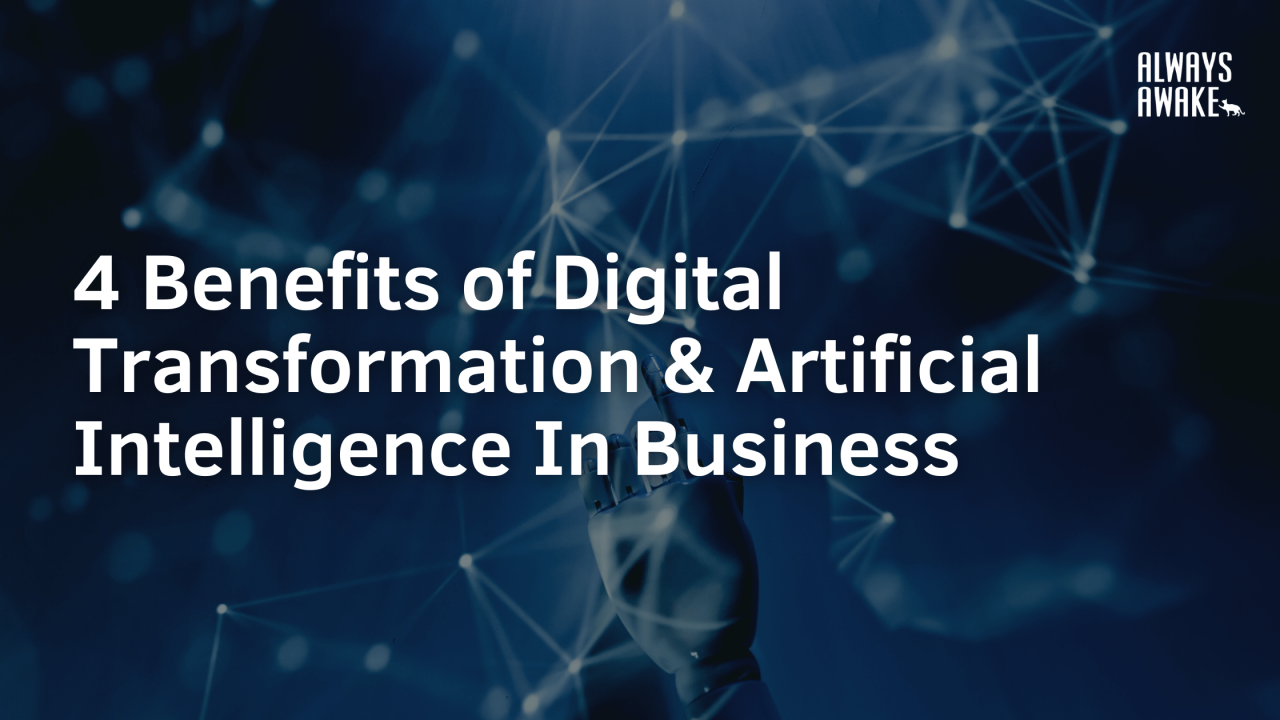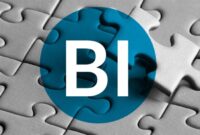The Role of Business Intelligence in Digital Transformation is a pivotal subject that intertwines data analytics with strategic decision-making in today’s rapidly evolving digital landscape. As organizations increasingly rely on data to drive their strategies, understanding how business intelligence shapes transformation initiatives becomes essential. This blend of technology and insight not only enhances operational efficiency but also fosters innovation and adaptability in a competitive market.
By leveraging business intelligence, companies can gain deeper insights into consumer behavior, market trends, and internal processes, enabling them to make informed decisions that align with their goals. This introduction sets the stage for exploring the multifaceted impact of business intelligence on various aspects of digital transformation.
In today’s fast-paced world, the importance of effective communication cannot be overstated. Whether in personal relationships, business settings, or casual encounters, the ability to convey one’s thoughts clearly and eloquently plays a significant role in fostering understanding and collaboration. With the rise of digital communication, mastering the art of conversation has become more crucial than ever. In this article, we will explore the fundamentals of effective communication, the barriers that might hinder it, and practical strategies to enhance your conversational skills.Effective communication is essentially the exchange of information in a way that is understood by both parties involved.
It encompasses not just the words spoken but also non-verbal cues such as body language, tone of voice, and facial expressions. Understanding these elements can significantly improve the clarity of your message. For instance, maintaining eye contact can convey confidence and interest, while an open posture can signal receptiveness and engagement.One key factor in effective communication is active listening. This means truly focusing on what the other person is saying rather than merely waiting for your turn to speak.
By practicing active listening, you can respond more thoughtfully, demonstrate empathy, and build stronger connections. Techniques such as paraphrasing what the other person has said or asking open-ended questions can help deepen the conversation and show that you value the speaker’s perspective.However, several barriers can obstruct effective communication. These may include language differences, cultural misunderstandings, emotional barriers, or even physical distractions.
For instance, in a multicultural setting, idiomatic expressions or humor might not translate well, leading to confusion or offense. Being aware of these potential pitfalls can help you navigate conversations more smoothly.Another common barrier is the tendency to make assumptions about what the other person knows or feels. This can lead to misunderstandings and miscommunication. To avoid this, it’s essential to ask clarifying questions and encourage feedback.
This not only helps to clear up confusion but also fosters a more collaborative atmosphere where all parties feel heard and respected.In the context of business, effective communication is vital for teamwork and productivity. Clear communication can help set expectations, assign tasks, and provide feedback. It can also play a crucial role in conflict resolution. When disagreements arise, addressing the issue directly and constructively can prevent misunderstandings from escalating into larger conflicts.

Techniques such as focusing on the behavior rather than the person or seeking common ground can be invaluable in these situations.Emotional intelligence also plays a significant role in effective communication. Being aware of your own emotions and those of others can help you respond in a way that is considerate and appropriate. This can be particularly important in sensitive conversations where feelings may run high.
By approaching such discussions with empathy and understanding, you can create a more positive and productive dialogue.In our increasingly digital world, the mode of communication has also evolved. Texting, emailing, and video conferencing have become commonplace, each with its own set of communication norms and expectations. While these formats can provide convenience, they also come with challenges. For instance, tone can often be lost in written communication, leading to misinterpretations.
To mitigate this, it’s advisable to be clear and concise with your written messages, and consider using emojis or other indicators to convey tone when appropriate.Additionally, becoming proficient in digital communication requires an understanding of etiquette. Responding promptly, being mindful of the timing of your messages, and respecting the recipient’s time are all essential components. Moreover, in a professional setting, understanding the hierarchy and the context of your communication can greatly influence its effectiveness.
For example, addressing a colleague in a casual manner might be acceptable in some contexts but could be seen as disrespectful in others.When it comes to public speaking, the ability to communicate effectively can set you apart. Whether presenting to a small group or addressing a large audience, clarity and confidence are key. Practicing your speech, organizing your thoughts, and engaging your audience are all strategies that can enhance your public speaking skills.
Additionally, handling questions and feedback gracefully is a vital part of maintaining an effective dialogue during presentations.Finally, one cannot overlook the importance of feedback in the communication process. Constructive feedback allows for growth and improvement, both personally and professionally. Encouraging a culture of open feedback can enhance teamwork and innovation, as it fosters an environment where individuals feel comfortable sharing their ideas and concerns.In conclusion, effective communication is a multifaceted skill that requires practice and mindfulness.
By focusing on active listening, understanding emotional intelligence, being aware of potential barriers, and honing your skills in various contexts—whether in face-to-face conversations or digital interactions—you can significantly enhance the quality of your communication. Remember, the goal of communication is not just to speak, but to be understood and to understand others in return. Embracing this mindset can lead to more meaningful interactions and strengthened relationships in all areas of life.



